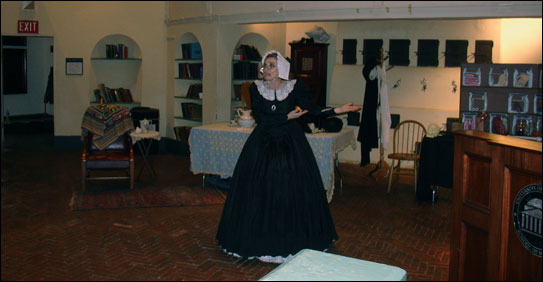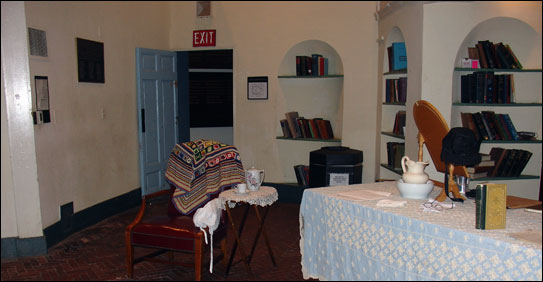Historical Highlights focuses on some of the unique materials available for viewing in the Historical Collections department, located on the fifth floor of the HS/HSL. For more information on the materials you read about, contact Rich Behles, the library’s Historical Librarian and author of our series, at 410.706.5048 or rbehles@hshsl.umaryland.edu.
The Lighter Side of Dark: The Mysteries of Opium

No doubt the word "Opium" here, in all its inky blackness, conjures up images of downtrodden addicts slumped in dank alleyways. Likewise, "Mysteries" suggests the aura of a desensitized stupor. Opium certainly does possess such sinister narcotic qualities, yet physicians have documented its therapeutic characteristics for millennia, dating back to the formulary of Scribonius Largus, written in about 43 A.D.
The New London Dispensatory of 1682 attests that "The best Opium is a Medicine to be prized, if it fall into the hand of a wise man…. It eases all manner of pains almost in a moment, whether inward or outward…." Further, "It helps in most diseases of the Breast and Lungs, as Coughs, Colds, Hoarsness, Asthma’s; stops all Fluxes, helps spitting of Blood, and is an excellent thing in Consumptions, if given by a prudent hand."
This 1700 book by Dr. John Jones attempts to guide the caution of that prudent hand, separating myth from truth, and shedding the Light from God (A Deo Lux) onto the murky therapeutics of a dangerous substance. Jones cites the ill effects of opium as "Nauseas, Vomitings, which are generally very dismal, with great distress, and sometimes dangerous ; Swimming in the head, Hiccoughs, Distresses, Anxieties, Convulsions, Faintings, Leipothymies, Syncopes, &c." Attempting to debunk previous misconceptions, Jones states that the trick to successful administration of opium is in its preparation. One must be extremely careful to separate off its "Earthy or Phlegmatick parts." In particular, he blames the "Rosin" for being the chief source of the drug’s dangerous narcotic tendencies. In other words, Jones will have us believe that one need not fear the ingestion of opium, so long as its composition and dosage are correctly proportionate.
Jones’ book enjoys a place in our Crawford Collection, the Library’s original founding collection. John Crawford’s own inscription on the title page adds special merit to the piece.













